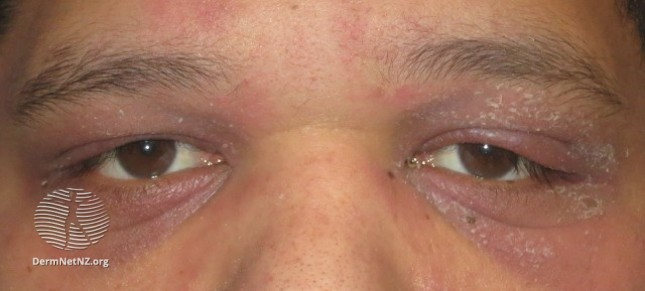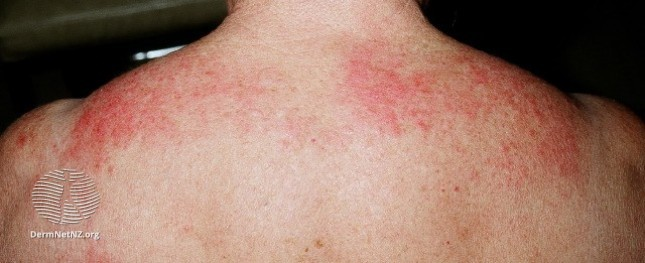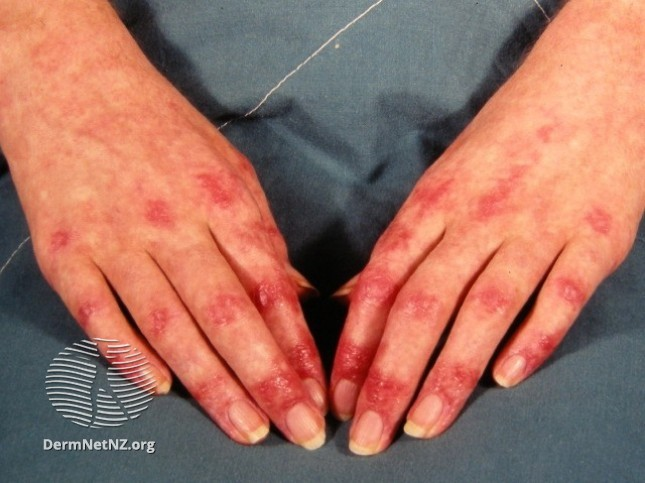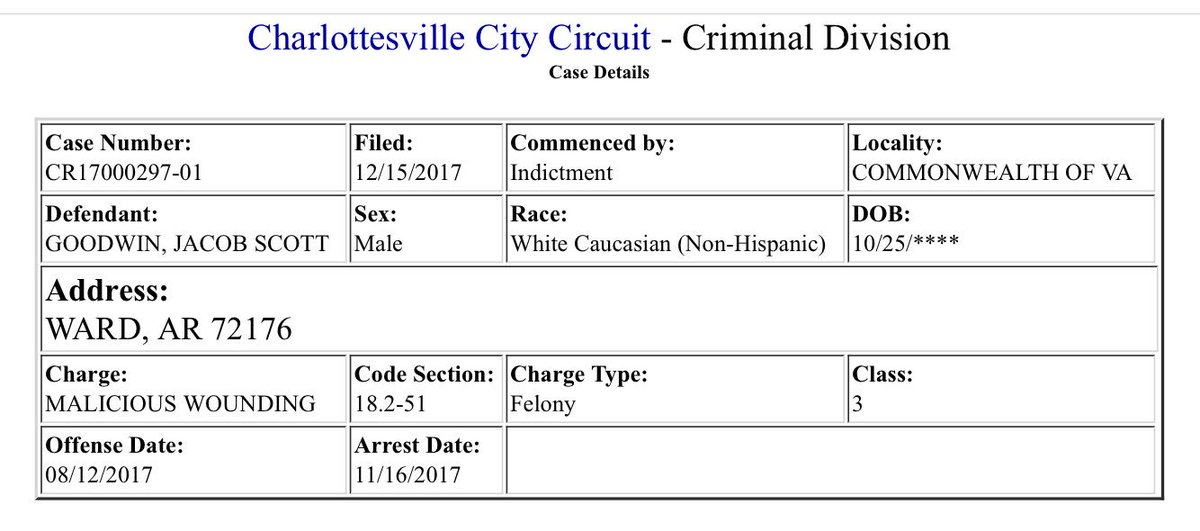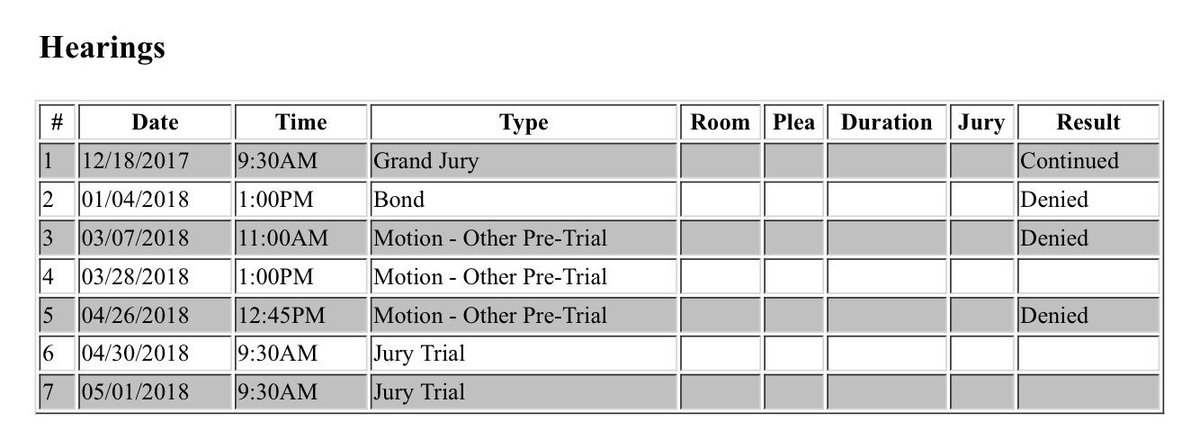Today's topic: Utility of Fecal Occult Blood Testing (FOBT) in the inpatient setting.
TL;DR - You probably shouldn't be doing them.
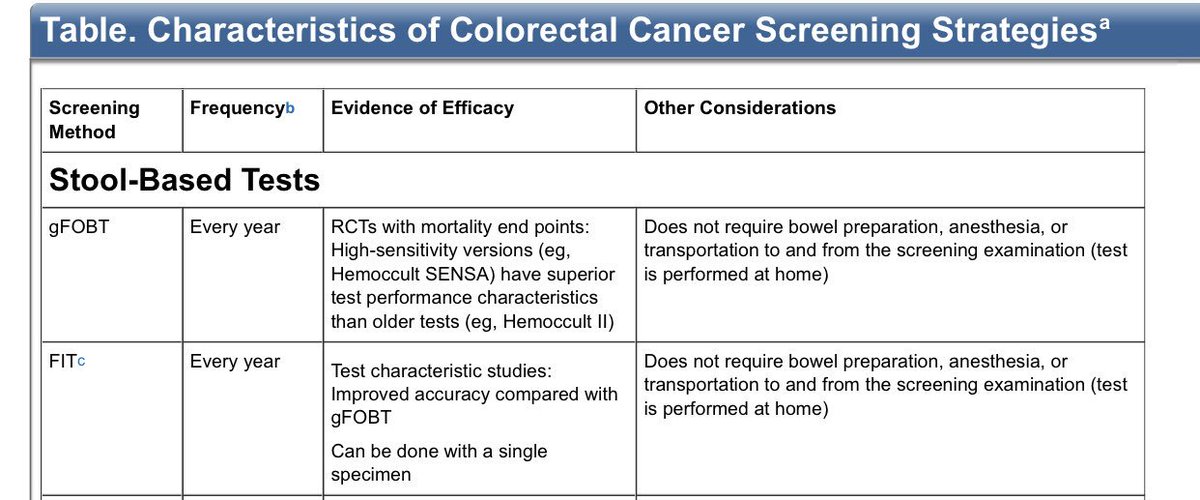
☝🏼 gFOBT is Guiac-based testing that tests for the heme component of hemoglobin.
✌🏼 FIT is an immunochemical test for the globin component of hemoglobin
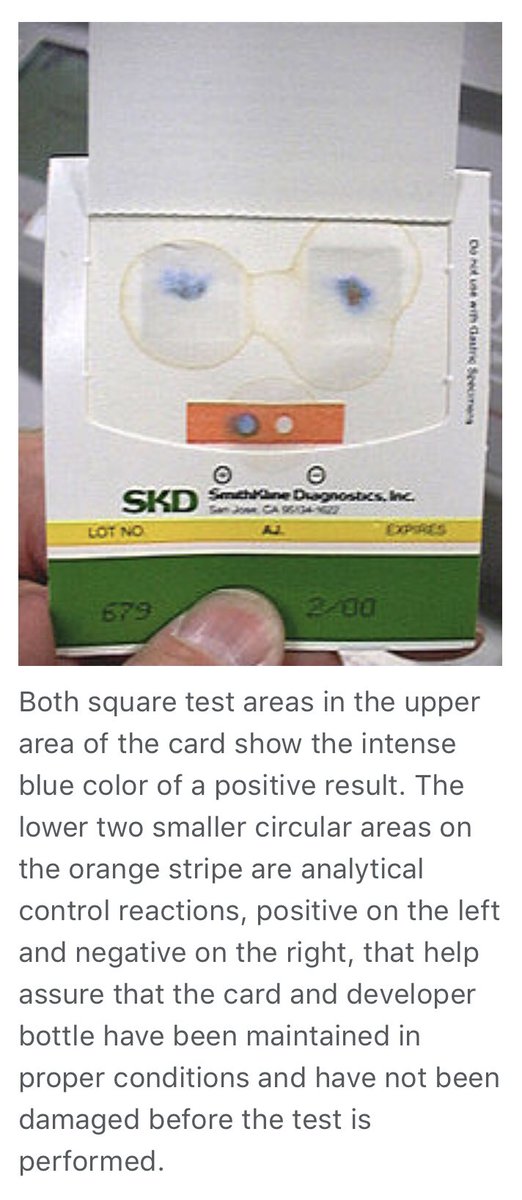
False Positives for CRC can be caused by medications that cause clinically insignificant GI blood loss (ASA, NSAIDs, EtOH), iron supplements, red meat & veggies like broccoli/cauliflower (due to peroxidase or catalase activity).
💩 Concerns for GI Bleed
💩 Work-up for anemia
💩 Iron deficiency
💩 Non-bloody diarrhea
💩 Colorectal cancer screening
💩 pre-anticoagulation initiation
Etc.
1️⃣ Can't control for the food restrictions that can cause false positives and negatives
2️⃣ Hospitalized patients are already high risk for occult GI bleeding due to comorbidity
3️⃣ Hospitalized patients are often on multiple drugs which may confound results
4️⃣ Bleeding from the GI tract may be intermittent and a negative result cannot exclude presence of occult bleeding
onlinelibrary.wiley.com/doi/pdf/10.111…
This 2014 study found that the majority of patients suspected of GIB underwent endoscopy regardless of FOBT results. ncbi.nlm.nih.gov/pubmed/2531435…
A 2017 TWDFNR article offers:
1️⃣ Take a careful history and exam
2️⃣ Consider a visual inspection of stool (observed melena has likelihood ratio of 25, patient report melena has LR+ of 5-6)
3️⃣ UGIB may have elevated BUN:Cr ratio (>30 has LR+ of 7.5)
💥FOBT is a CRC screening tool and not a really a diagnostic test for GI bleeding
💥FOBT is plagued by poor sensitives, poor specificity, false positives and false negatives for this purpose
💥FOBT doesn't seem to actually impact Medical Decision Making
(POLL)




